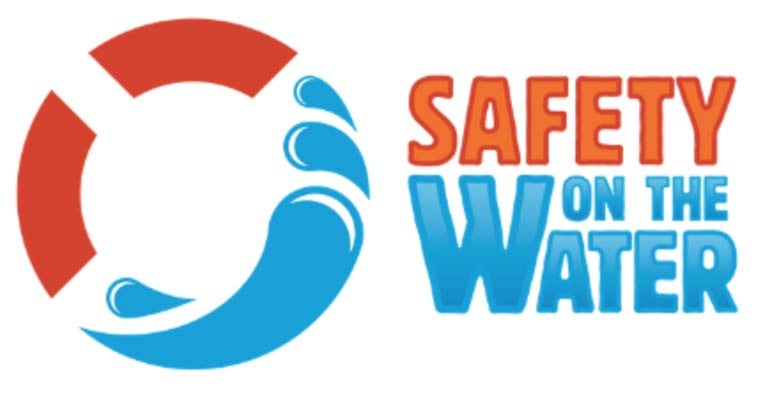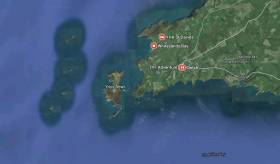Displaying items by tag: coastgaurd
New Water Safety Website is Launched
Minister of State at the Department of Transport, Hildegarde Naughton TD today (31 July) launched the newly updated Safety on the Water website.
This is a collaboration between the Coast Guard, RNLI, Water Safety Ireland, Irish Sailing and BIM, and incorporates a new Safety on the Water logo.
Speaking at an event hosted by RNLI Galway to formally launch the new initiative today Minister Naughton said; “Water safety is not just a seasonal consideration - it is an all-year-round commitment and everybody has a role to play, be it as participants, as supervisors of children or simply as observers who can raise the alert”.
Over the last ten years, 1,200 people drowned in Ireland, an average of 10 every month with many drownings happening quickly, silently and in cooler water with hidden currents that impairs the ability to swim and float. These losses bring unspeakable hardship and sufferings on families and friends and they are preventable.
She added “I commend the excellent collaboration between the different organisations, Coast Guard, RNLI, Water Safety Ireland, Irish Sailing who have done such wonderful work in promoting safety standards across the marine leisure industry and BIM in their work with the fishing communities”
Prevention is the overarching objective of the Safety on the Water Initiative. It aims to attract a higher level of interest from the general public to the site and to encourage a younger audience to engage with a more modern interactive medium. It provides a one-stop shop for all marine safety information in order to minimise accidents and to prevent the loss of life on Irish waters.
Minister Naughton referenced the advice of the Coast Guard and Water Safety Ireland “that water-based inflatable devices present a clear risk to the public. The Coast Guard and the RNLI deal with a large number of inflatable related callouts. Please heed their advice and leave them at home. They are not suitable for use at the seaside or at any open waterways”
Minister Naughton also acknowledged the efforts that the Search and Rescue (SAR) organisations have made to ensure the uninterrupted delivery of SAR services during the Covid-19 crisis adding: “It is to your great credit that you have put measures in place to ensure the safety of your people throughout these challenging times. Coast Guard volunteers have in addition, assisted the HSE with provision of transport and other support. Water Safety Ireland has worked closely with the local authorities to ensure the availability of beach lifeguard services and RNLI have ensured the continued availability of their vital services”.
The safety on the water website provides information on, what to do in an emergency and how to plan water-based activities as well as links to the websites of the participating organisations. The site provides access to a series of water safety publications including the Code of practice – The Safe Operation Recreational Craft, publications on different water-based activities and a leaflet on the use of Personal Floatation Devices / Life jackets.
The UK Coastguard received a 999 call from a member of the public just before 14:30 today (28 April) to say they could see a fishing vessel in difficulty near the rocks at St David’s Head, Pembrokeshire in North Wales
The fishing vessel subsequently sank, it is unknown how many crew were on board.
The Coastguard search and rescue helicopter based at St Athan, Coastguard Rescue Teams from St David's Head and Fishguard are all searching the area.
Man Drowns Trying to Rescue Dog
A man has been pronounced deceased at Lancaster Hospital after being rescued from the River Lune in Lancaster this afternoon.
At 2.12 pm a member of the public called Liverpool Coastguard to report that they could see a man in the water near the weir of the River Lune in Halton. Further information yielded that the man had jumped into the river after his dog had got into difficulty, but that the man himself could not swim.
Liverpool Coastguard tasked Knott End and Morecambe Coastguard Rescue Teams, the Morecambe RNLI inshore lifeboat and hovercraft, swift water rescue technicians from Lancashire Fire and Rescue Services and a rescue helicopter from RAF Valley.
At 3pm the man was recovered and treated by waiting paramedics. He was transferred to Lancaster Hospital but was later pronounced deceased.
Liverpool Coastguard Watch Manager Paul Parkes said:
"This is a tragic incident where a dog owner has entered the water to try and rescue his pet and sadly, has not survived. We understand that for many people, a dog can be like a member of the family, but we would advise that people dial 999 and call the Coastguard if your pet gets into difficulty on the coast as we can send teams with specialist training and equipment to perform a rescue."






























































